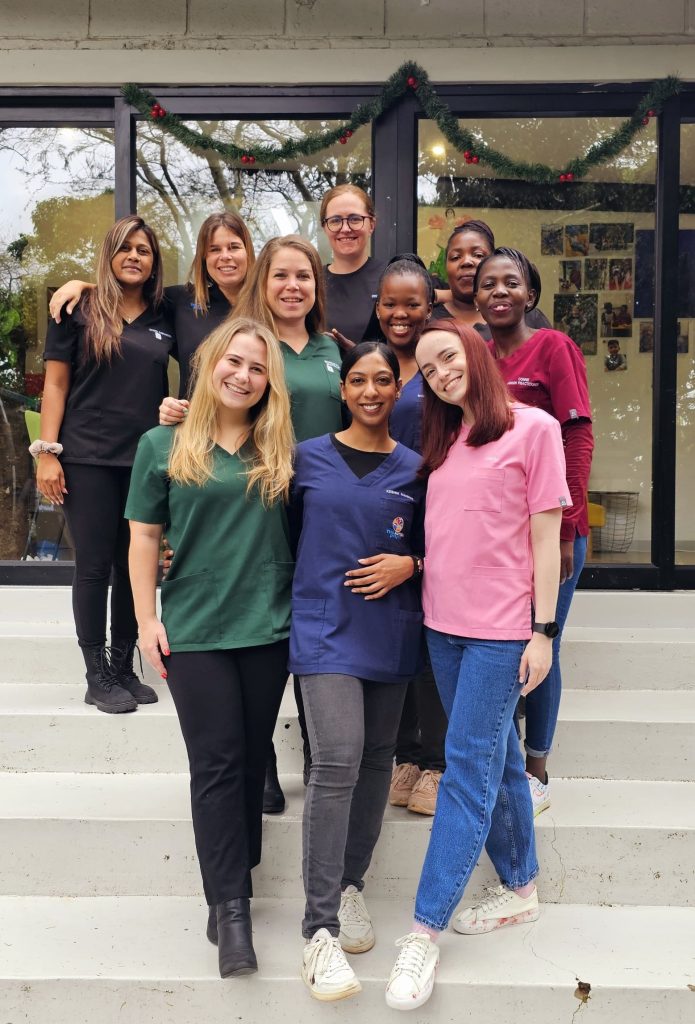In recognition of World Autism Day on 2 April, we chatted to Tam Bennett, the director of The Autism Project in Salt Rock.
“You can only do this work if you love it,” says Tam. She is the founder of The Autism Project, an intervention centre that helps provide solutions for families with children on the autism spectrum. She has been working with neurodiverse children for almost 20 years and is constantly learning and collaborating in an effort to make a real impact.
 Tam started her journey in the world of special needs when she decided to do some volunteer work as a student. She was studying journalism at the time, but when she met and connected with a little girl with autism, she went on to study psychology instead. She then also trained as a Montessori teacher and worked in a variety of roles, including teaching and intervention work in South Africa, the United Kingdom and the United Arab Emirates. When she got married, she moved to Botswana where she was part of the team responsible for setting up the national association for autism, Autism Botswana, an NPO that works to improve the quality of life for people with autism. She also worked with Camphill Community Trust, a village for people with special needs, including a school with an autism unit. During this time, she also travelled back to South Africa regularly to run training for Autism South Africa.
Tam started her journey in the world of special needs when she decided to do some volunteer work as a student. She was studying journalism at the time, but when she met and connected with a little girl with autism, she went on to study psychology instead. She then also trained as a Montessori teacher and worked in a variety of roles, including teaching and intervention work in South Africa, the United Kingdom and the United Arab Emirates. When she got married, she moved to Botswana where she was part of the team responsible for setting up the national association for autism, Autism Botswana, an NPO that works to improve the quality of life for people with autism. She also worked with Camphill Community Trust, a village for people with special needs, including a school with an autism unit. During this time, she also travelled back to South Africa regularly to run training for Autism South Africa.
When she moved back home, she worked at a local school while continuing her work with Autism South Africa, before opening her own space – The Autism Project – in 2015. Now, Tam and her team see around 35 children ranging from two to 17 years old, and offer a combination of interventions and strategies to help them thrive, as well as training and workshops for families, facilitators and professionals.
The field of autism is constantly evolving so it’s important for Tam and her team to keep up with current research and best practices, and to guide families through these changes. “When you work with neurodiverse kids, their families are part of the team,” explains Tam. “Our job is to try and provide as much information and then support the parents’ choice in their journey.”
Although Tam is passionate about intervention, she admits that it’s not always affordable or accessible. For this reason, she’s trying to encourage a more inclusive model by collaborating with schools. In fact, one of the projects that Tam is most proud of is a pre-school inclusion initiative that The Autism Project started together with a school called Headway in Durban North. They opened ‘the grasshopper class’ for children with autism alongside their mainstream classes four years ago and it’s been a huge success. Several of the neurodiverse children have transitioned into mainstream classes, while children in mainstream classes have the freedom to move into the grasshopper space if they need some extra support. “It’s been absolutely incredible,” says Tam. “We would love to support more of this with other schools because it’s more affordable for families, there’s a lot of support and they’re in an inclusive setting. For our autistic community to receive the necessary education and support, schools must adapt in ways that empower teachers to support our children without overwhelming themselves or underserving the students. Inclusion will look different across schools and this diversity should be embraced. Gradual training, hands-on experience and the space to evolve is necessary for true inclusion.”
The work that Tam and her team dedicate their days to is deeply rewarding – and challenging. “When your kids succeed, it’s personal. When they’re struggling, it’s personal,” she says. Her practitioners work closely with occupational therapists, speech therapists and psychologists and these trans-disciplinary relationships are key.
Tam’s advice for families who might be struggling with a new diagnosis is to access as much information as possible. “Autism presents in so many different ways and the way your child’s autism presents dictates what their treatment should be,” she says. “The more you understand your child, the better support they can receive.”
She also recommends working with therapists who specialise in neurodiversity as this can save considerable time and money in the long term. It’s always a good idea to chat to other families with neurodiverse children and to join a support group. “Create your new community,” she advises.
Details: The Autism Centre, Eden Health Centre, Eden Village, Old Fort Road, Foxhill, Salt Rock; www.autism-project.com; 072 282 2997; [email protected]; IG: @theautismprojectkzn
RESOURCES FOR PARENTS
FOR DIAGNOSTIC ASSESSMENTS:
KZN Neurodiversity Centre
072 494 3091; [email protected]
FOR AN INCLUSIVE SETTING:
Headway Pre-Primary
031 563 2288
FOR AUTISM-SPECIFIC SCHOOLING:
Incredible Minds Learning Centre
084 7171 2397; [email protected]
FOR AFFORDABLE INTERVENTION:
Action in Autism
4051 031 563 3039; [email protected]


